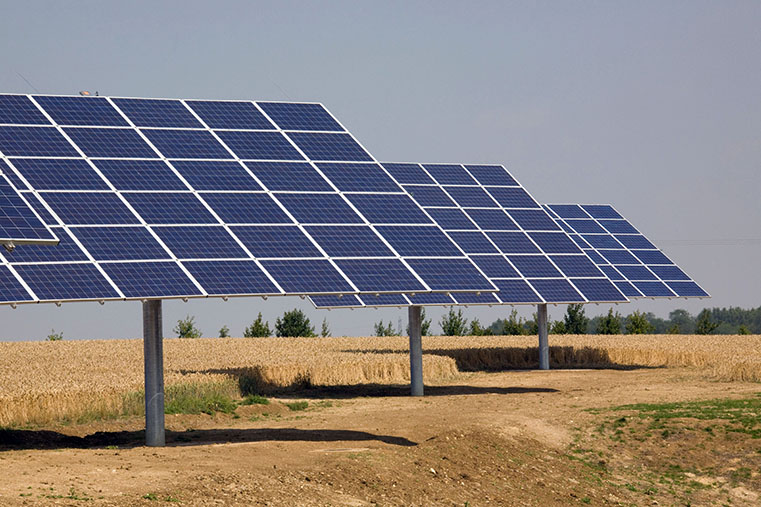Minister considers blocks to solar farm construction
 © Tim Scrivener
© Tim Scrivener Representatives of Britain’s solar energy industry have attacked proposals that could see panel installations blocked on swathes of England’s farmland.
Defra secretary Ranil Jayawardena is reportedly considering the move amid concerns over food security, to ensure that productive farmland is not developed.
Although not yet confirmed by Defra, the minister has mooted extending the types of land covered by the term Best and Most Versatile (BMV).
See also: New bird housing order to be imposed in East Anglia
At present, this term includes all land classified Grade 1 to 3a. But if reports of Mr Jayawardena’s proposals are proved accurate, the BMV tag would be extended to Grade 3b land.
This is defined as moderate quality land capable of producing moderate cereal yields and lower yields of crops such as rape, potatoes or sugar beet.
Including Grade 3b land could mean that more than half of the total farmland area would then be classified as BMV. This would subject solar farm projects to more stringent planning reviews.
False and baseless
According to Solar Energy UK this would tilt planning permission against solar panel farm construction in England.
In a strongly worded statement, the organisation said the government idea was in response to “false and baseless claims that solar farms threatened the UK’s food security”.
It argued that solar farms defended food supply because they addressed climate change which was identified by Defra as the biggest threat to food security.
A spokesman for Solar Energy UK added that solar farms helped keep farmers in business, by providing them with a stable source of income in uncertain economic times.
And he said that, even if five times as many solar farms were built, they would occupy less than 0.3% of UK land – less than half the amount occupied by golf courses.
Anti-growth coalition
Solar Energy UK chief executive Chris Hewett said: “The UK solar sector is alarmed by attempts to put major planning rules in the way of cheap, homegrown energy.
“Solar power is the answer to so many needs and policy demands: it will cut energy bills, deliver energy security, boost growth and help rural economies.”
A Defra spokesman said the government was committed to increasing both long-term energy security and the UK’s food security.
“The environment, farming and economic growth go hand-in-hand, as stated in the Growth Plan,” said the spokesman.
“That’s why we will be looking at the frameworks for regulation, innovation and investment that impact farmers and land managers, to make sure that our policies are best placed to boost food production, increase resilience, drive growth and protect the environment.”
If plans to reclassify grade 3b land as BMV do go, approval would also be required by the Department for Business, Energy and Industrial Strategy (BEIS) and the Department for Levelling Up, Housing and Communities.
According to an article in the Guardian newspaper, it is likely BEIS ministers would oppose the move, because they wish to demonstrate they are deregulating all forms of energy production including oil, gas, fracking and renewables.
